Sustainability: Living in Harmony with Nature
At RWOTS, sustainability isn’t just a buzzword; it’s the foundation of our community. We believe that living in harmony with nature is not only essential for the planet’s well-being but also for our own. Our approach to sustainability is holistic, encompassing every aspect of the project, from the energy that powers our events to the food we grow and the buildings we inhabit. We are committed to creating a regenerative ecosystem that minimizes our environmental impact and serves as a model for a more sustainable future.
Our Approach: A Dedicated Section Explaining RWOTS’s Commitment to Sustainability.
Sustainability is ingrained in every aspect of the project, from the design of the site to the daily practices of the community. We are creating a closed-loop system where resources are used efficiently, waste is minimized, and the land is regenerated. Our commitment to sustainability includes:
- Permaculture: Implementing permaculture design principles to create a resilient and abundant ecosystem.
- Renewable Energy: Harnessing the power of the sun and wind to meet our energy needs.
- Zero Waste: Striving for zero waste through composting, recycling, upcycling, and conscious consumption.
- Sustainable Building: Utilizing natural, locally sourced, and recycled materials in all construction.
- Water Conservation: Implementing rainwater harvesting, greywater recycling, and water-efficient fixtures.
- Education and Empowerment: Providing workshops and training to empower community members and visitors to adopt sustainable practices.
Permaculture: Designing for Abundance
Permaculture is at the heart of our land management strategy. We view the RWOTS site as a living ecosystem, and we are using permaculture design principles to create a landscape that is both productive and regenerative. This includes:
- Observation: Carefully observing the land, its natural patterns, and existing resources before making any major changes.
- Zoning: Dividing the site into zones based on how frequently they are used, with the most intensive activities located closest to the community hub.
- Water Management: Implementing swales, ponds, and rainwater harvesting systems to capture and store water, prevent erosion, and create diverse habitats.
- Soil Building: Improving soil fertility through composting, cover cropping, and no-till gardening techniques.
- Food Forests: Creating diverse and abundant food forests that mimic natural ecosystems, providing food, fuel, fiber, and habitat.
- Polyculture: Growing a variety of plants together to increase yields, reduce pests and diseases, and enhance biodiversity.
- Integration: Integrating different elements of the system (e.g., animals, gardens, buildings) to create mutually beneficial relationships.
Renewable Energy: Powering a Greener Future
RWOTS is committed to being powered by clean, renewable energy. Our goal is to achieve energy independence and demonstrate the viability of off-grid living. We will utilize a combination of:
- Solar Power: Installing photovoltaic (PV) panels to generate electricity from sunlight. This will be our primary source of electricity for the site, powering the venue, homes, and community facilities.
- Wind Power: Incorporating wind turbines, if the site conditions are suitable, to supplement solar power and provide a more consistent energy supply.
- Biogas: Exploring the use of a biogas digester to convert organic waste (food scraps, manure) into biogas for cooking and heating.
- Solar Hot Water: Implementing solar hot water systems to provide hot water for showers, kitchens, and other needs.
- Energy Efficiency: Designing energy-efficient buildings and promoting responsible energy consumption practices within the community.
Zero Waste: Closing the Loop
RWOTS is striving for zero waste. We believe that waste is a resource in the wrong place, and we are committed to minimizing our environmental impact by:
- Composting: Composting all organic waste (food scraps, yard waste, etc.) to create nutrient-rich soil for our gardens.
- Recycling: Implementing a comprehensive recycling program for all recyclable materials.
- Upcycling: Repurposing and creatively reusing materials that would otherwise be discarded.
- Minimizing Packaging: Encouraging the use of reusable containers and minimizing single-use packaging.
- Education and Awareness: Educating community members and visitors about the importance of waste reduction and responsible consumption.
Sustainable Building: Naturally Constructed Spaces
We are committed to using sustainable and natural building materials and techniques in the construction of all RWOTS buildings, including the venue, housing, and community facilities. This includes:
- Locally Sourced Timber: Using timber from sustainably managed forests in the region whenever possible.
- Reclaimed Materials: Prioritizing the use of reclaimed and recycled materials (e.g., salvaged wood, bricks, windows, doors).
- Natural Building Techniques: Exploring and implementing natural building methods such as:
- Cob: Building with a mixture of clay, sand, and straw.
- Straw Bale: Using straw bales as insulation and structural elements.
- Earthbag: Filling bags with earth to create walls.
- Timber Framing: Utilizing traditional timber framing techniques.
- Energy-Efficient Design: Designing buildings to maximize natural light, ventilation, and passive solar heating and cooling.
- Green Roofs: Incorporating green roofs to improve insulation, reduce stormwater runoff, and create habitat.
- Geodesic Domes: Using these structures for housing and other purposes, taking advantage of their strength, efficiency and unique aesthetic.
By embracing these sustainable practices, RWOTS aims to create a thriving community that lives in harmony with nature, minimizes its environmental impact, and serves as an inspiring example for a more sustainable future. We believe that this commitment to ecological responsibility is not only essential for the planet but also enhances the well-being and resilience of our community.
